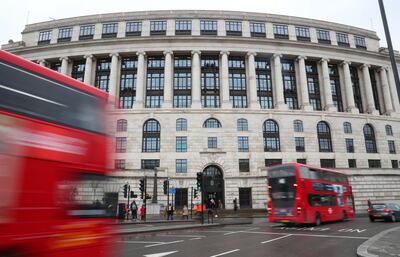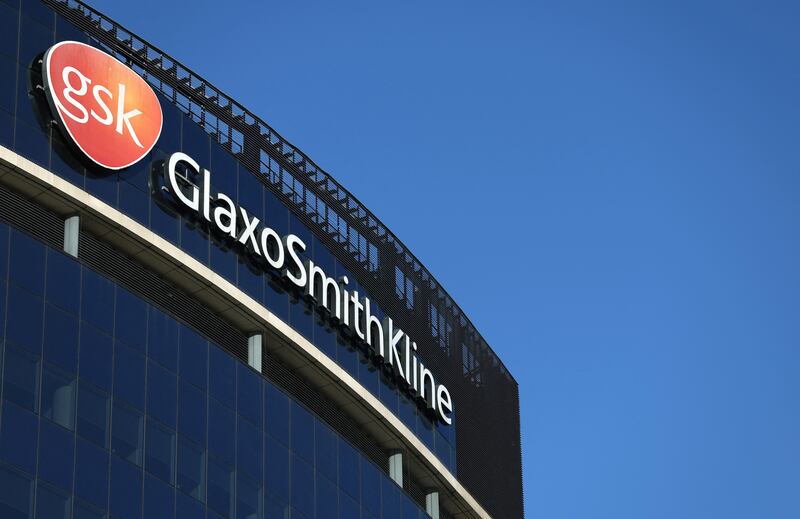Unilever is considering a higher offer for GlaxoSmithKline's consumer health business, despite its £50 billion ($68.4bn) offer being rejected at the weekend.
London-based Unilever said on Monday that GSK’s consumer healthcare unit – which produces Sensodyne toothpaste and Emergen-C vitamin supplement – was a “strong strategic fit” for its brand, which makes Lifebuoy and Dove soap.
"The acquisition would create scale and a growth platform for the combined portfolio in the US, China and India, with further opportunities in other emerging markets," it said.
Marmite maker Unilever is promising to overhaul its structure and plans to sell slow-growth brands as it looks to make a higher offer for GlaxoSmithKline consumer unit.
Unilever said on Monday that it will announce the restructuring later this month. The disclosure came after GSK said at the weekend that it had rejected three offers from the consumer products company for a bundle of brands, including Advil painkiller and Sensodyne toothpaste.
GSK said on Saturday that Unilever’s offer "fundamentally undervalued" the business, and announced that it would stick to its plan of listing the business this year.
GSK shares jumped 5 per cent in early trading on Monday. The company’s consumer business, in which US drugs company Pfizer owns a 32 per cent stake, has annual sales of about £10 billion.
Meanwhile, Unilever's stock slid 6.5 per cent to touch March 2020 lows after it signalled it would continue to pursue the deal.
"The negative share price reaction probably reflects investor fears that Unilever is going to come back with a higher offer and, potentially, pay too much," said Russ Mould, investment director at AJ Bell.
"Unilever’s actions effectively fire the starting gun for a bid war for the consumer goods unit. Nestle could be interested, so too will private equity."

Mr Mould said Unilever is bidding for the unit "because it needs to inject some excitement into its business", having recently disappointed with sales and profit margins.
GSK has been planning to spin off its consumer brands but shareholders such as Elliott Investment Management have been pushing chief executive Emma Walmsley to consider a sale instead.
The drug maker said at the weekend that it is sticking with plans to spin off the portfolio.
“This really is a Marmite situation for GlaxoSmithKline’s shareholders – they are either hoping for a quick return now through a sale or better returns in the future through the planned demerger," Mr Mould said.
“GlaxoSmithKline chief executive Emma Walmsley would be delighted if someone came and paid top dollar for the unit, as she has been under pressure from investors to deliver some good news for a long time."
Demergers can be beneficial as management are able to run the business with more freedom, Mr Mould said, rather than simply being a division of a bigger company and having to follow group protocol.
"Therefore, the consumer goods arm could be worth a lot more in time, if allowed to forge its own path as a stand-alone business and potentially enjoy a stock market re-rating," he said.
If Unilever secures the deal, it would also be the company’s biggest transaction, advancing chief executive Alan Jope’s ambition to execute bigger and bolder acquisitions to reshape the company’s roster of labels.
“This is not about Unilever going from a £100bn company to a £150bn [business] as there will be portfolio rotation,” Mr Jope said on Monday.
“We are looking for competitive, responsible growth and don’t conflate this activity with a defensive mindset.”
Shortly after taking the helm in 2019, Mr Jope signalled that the company was ready to progress past the takeover strategy of former chief executive Paul Polman, who had focused on incremental deals in fast-growing sectors such as male grooming and home care.
Mr Jope’s three-year tenure has been mired in distractions and misfires that have held back the company’s stock.
Fundsmith founder Terry Smith, one of Unilever’s top 15 shareholders, said last week that the company had “lost the plot” by focusing on burnishing its sustainability credentials at the expense of financial performance.
Separately, the owners of British supermarket Asda, the billionaire Issa brothers, are considering a multibillion pound takeover of UK pharmacy chain Boots – reportedly worth as much as £10bn.
The brothers, Mohsin and Zuber, have held early stage talks over the possibility of adding Boots to their portfolio, joining a race to snap up the chain's 2,200 UK shops. Bain Capital and CVC Capital Partners are also considering a joint bid.






